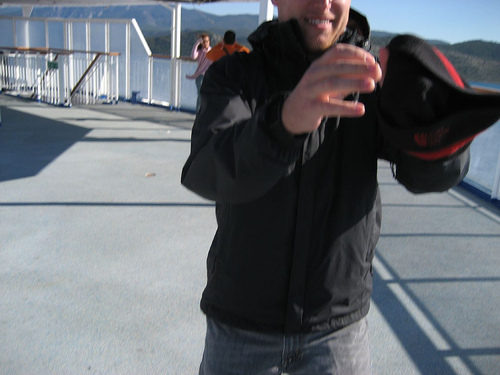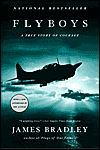
It’s the end of Day 1. It's been a long day.
Landed last night in Entebbe, where I met up with Diana, who drove us to her place in Kampala. She had a massive dinner cooked and after that, I went to bed, where I didn't really sleep much all night. Spent the first couple hours on the last of my geographical / historical research on Northern Uganda, and the rest of them tossing around in the heat, under the mosquito net.
Morning came and Diana deposited me at the bus depot in downtown Kampala, which was a complete madhouse - cramming people onto crammed buses, hawkers selling you everything from bread to fake watches to battery-powered fluorescent lights to shoes and flip flops. The bus - regardless of where its headed, apparently - doesn't leave until it is full. And they mean full - everyone's sitting on someone, which is nice, when you're driving 6 hours over the surface of the moon, in heat suited more for the surface of the sun.
Enter Gulu.
The bus drops me at a similarly insane taxi / bus depot, with 80 people screaming at me that they are in fact my cab, my boda-boda. Boda-boda is slang for the motorcycle taxis of death, which are everywhere. It comes from the English slang for border-to-border, back when these guys used to transfer people completely across the country, unbelievably enough. Apparently they still sometimes do. MY BODA BODA, MUZUNGU!
But, no. Nobody was there to meet me in the withering heat, and when I raised Bob on the phone he told me to, you guessed it, hop a boda-boda to his offices. So that was interesting, on the back of that thing with my backpack behind me and laptop case in front of me, and the guy not really "knowing" where he was going, so he could charge me extra. Upon arriving, I met Bob and then Mark.
---
Bob heads up the programs (all of them) for Northern Uganda, whereas Mark directs the work done specifically by the Children of War centre established in Gulu, for all of Northern Uganda. I felt like I learned so much from just my first brief meetings - Mark gave me a kind of overview of the environment and context they're currently operating in (and was surprised how much I knew already - what follows is a mix of those two sources):
World Vision's Children of War programme is the biggest programme in all of Uganda, sadly enough. As Mark put it, Uganda is still very much a country where changes come via the bullet, not the ballot, and more Acholi people (the main ethnic group under persecution there) are killed with each new strife. The CoW program was first instituted in 1988 in response to Joseph Kony's (the leader of the LRA since 1987) killings. Kony rose to power in the LRA as part of a branch off of Alice Auma's Holy Spirit Movement - a nightmare in and of itself. While no solid information exists, most online resources claim that mass abductions of children didn't start until 1994, however I would come to personally meet former abductees that were "recruited" to the LRA long before that.
The LRA is actually an insurgence movement in Northern Uganda that started in large part in response to Yoweri Museveni's rise to power in 1986 when he overthrew the then-president, Tito Okello (an ethnic Acholi). Thus, the LRA had at least some support from the Acholi community in the north, at first, because the National Resistance Army (of Southern Uganda). The LRA came to adopt tactics of very often attacking civilian targets, raiding them of supplies and often abducting the civilians themselves to carry them off.
In 1991, more concerted efforts were made to do away with the LRA by cutting off what support they did have in the population, but this failed and only served to anger Kony even more - the LRA responded by mutilating any Acholi they thought to be a government supporter. The people now had a failing government and an attacking insurgency, neither of which there was much support for.
After some brief peace negotiations broke down in the early 90's, the LRA fled north across the Sudanese border and established bases there with the approval of the Sudanese government, in response to Ugandan support for the rebel Sudan People's Liberation Army (SPLA) fighting the civil war in Southern Sudan. A tragic irony if ever there was one.
Kony then got even more brutal, as mutilations became a regular occurrence - the cutting off of ears, lips, and noses being common, but sometimes much worse. This too was when the abductions began to increase sharply, and were sometimes en mass. My experiences in Uganda would lead me to question over and again how the LRA could continue to exist when so many people oppose it, until someone answered my question with a rather blunt question of their own: "If you were fighting a rebel army where the majority of their soldiers were your own stolen children, how exactly would you fight?" As one source puts it: "The moral ambiguity of this situation, in which abducted young rebels are both the victims and perpetrators of brutal acts, is vital to understanding the current conflict."
In the mid 90's, the government began the establishment of Internally Displaced Persons (IDP) camps - supposed safe havens for the hundreds of thousands of people who had fled their villages due to LRA attacks. They weren't safe in the camps either, the LRA would find them there as well.
In 2002, the Uganda People's Defense Force (UPDF) launched yet another attempt to try to wipe out the LRA, which responded by increasing their attacks in northern Uganda to levels of brutality similar to the mid 90's. This would continue for about 2 years until the military pressure on the LRA became enough to drive them back (mainly into Sudan, and the Democratic Republic of the Congo).
No solid numbers exist on the effects of the conflict, but estimates are that at least 12,000 have been killed and almost 2 million displaced from their homes. Even less solid evidence is to be had regarding the abductions, as so many were never to return - according to a recent survey in Kitgum and Pader (neighboring provinces to Gulu), at least 66,000 youth between ages 13 and 30 have been abducted.
66,000. An entire generation of an entire ethnicity, used as soldiers and sex slaves.
The CoW programme still supports many of the families that are still trying to find their children. As the LRA is continually weakened, community resistance to the rebellion grows - but it is still a tense situation, and as Mark put it, they are "still treating the symptoms, not the problem." The good news, however, is that abductions in recent years have been minimal.
The CoW programme operates under 2 main headings - the centre itself (a complex with classrooms, living quarters, a medical clinic, dining facilities, and administrative offices), and in-community operations. As few abductees are currently returning from "the bush" as they call it, the majority of the work is now being carried out in the communities.
The work in the centre has primarily focused on receiving and documentation, counseling, reconciliation (more on that shortly), family tracing, treatment / relief (medical and psychological), and the introduction of educational options (returning to school, basic occupational therapy in carpentry, bike repair, etc.). The average child would spend approximately 40 days in the centre before returning to his community (often in an IDP camp, that is). At their height of operations, there were actually 3 centres, one for young children (where I was), one for new mothers (often victims of rape during abduction), and one for young adults). They remain posed, however, to re-open centers as needed should either a peace agreement be reached or hostilities increase again, the possibility of either seeming eminent. The centre also serves to treat what are referred to as "silent sufferers" - the thousands of children who were not abducted, often because they were too small to be of use at the time, but who may have been separated from their family, left behind often when the family themselves were abducted or killed.
The work in the communities is the primary work still being carried out. It involves, among other things:
- Liaising with local artisans / institutions to set up job opportunities for the returning youth
- Forming small independent groups focused on income generation
- Community Volunteer Caregivers (CVCs) who work primarily with the group therapy of children in the communities
- Forming social clubs (Peace clubs, etc.)
- Continued treatment as necessary (medical, psychological)
- Formal education (to a very small extent, as education in Uganda is priced extremely prohibitively)
Two areas of work that take place across both the centre and the community are reconciliation and truth-telling. Mark couldn't stress enough how vital these were - very often the perpetrators of the crimes were other children returning to the same communities, as in the case of a boy in the centre forgave his mother's killer, also a returned abductee. Mark had further worked with a pregnant mother in the new mother's centre working through the reconciliation process with the man who had cut her lips off. As he put it, the CoW work "cuts across ages and geographies." The truth-telling really runs hand-in-hand with, and is very much a part of, the reconciliation process, however it is clear that the current system cannot support these processes, and locally-grown capacity is necessary for that. Mark pointed out that the government needs to help create this structure, but that "they have a lot on their plate already."
Mark told me a bit more about what to expect of the next few days, and then we talked about the interesting timing of the peace talks, set to take place on Friday of this week, in Juba - Kony himself was rumored to be potentially signing a peace agreement there. Mark pointed out that any such agreement would necessarily precipitate the government, declaring at some point, that there were no more children in the bush. This would create, of course, unrest among those with children still missing - be they alive and still in the bush, or now presumed dead, either way - a difficult situation at best.
---
I like how I see fit to complain about crowded buses, and the heat, and not being met when I arrive. Like I actually have problems in my life. And yet, in a weird way, I think its kind of intrinsically OK that I have my minor problems, as long as they aren't where the buck stops. I look at the success in my life and the related hassles that come bound in with them, and if you must have the one with the other, but yet still you can be in a position to help - there's something OK about that. So long as you're actually doing something.
After the meeting I found my hotel room, then wandered around downtown Gulu a bit, in the waning sunlight. Got some extra batteries, bottled water, and 20 minutes in the internet café. Had a local beer (about $1.10, exchange rate works in my favor, at least outside the major cities), started To Kill a Mockingbird, and then met Bob for a quick and not very satisfying late dinner.
Meanwhile Mugabe's busy setting up more rigged elections down in Zimbabwe. Did you know that Al Jazeera's the only international news group allowed in that country? Gah.
















